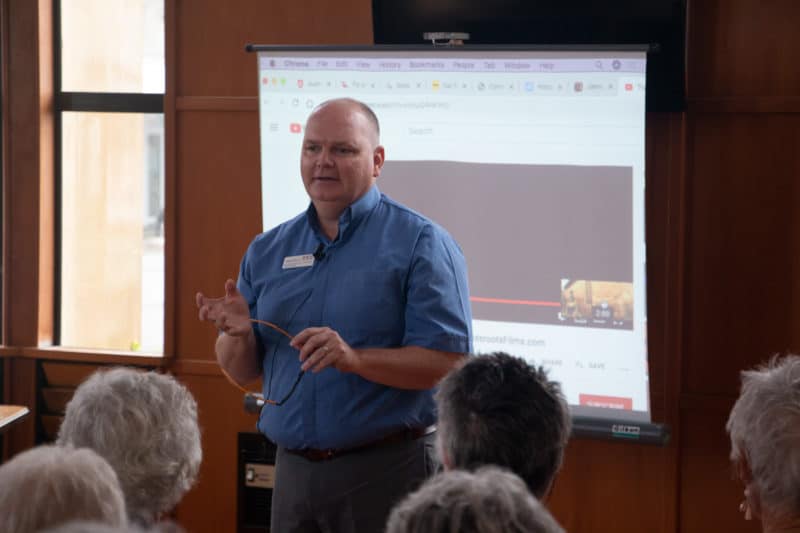By practising your humanity, you are living your Christianity.
This was the message of Australian Jesuit priest Fr Jamie Calder in his talk entitled “Christian Mission” on February 29 in Palmerston North.
Fr Calder is a theology lecturer and practising psychologist, whose clinical specialisation is broadly in men’s mental health.
“If you wish to practise your Christianity, first, practise your humanity. If you want to be a Christian, be a human first. The two go hand in hand,” he said.
Fr Calder said that, in Australia, as in most places in the world, there is currently a crisis of “mattering”.
“People wonder who they matter to. They wonder if what they do is important and matters to others. And I want to say to you, Christianity has had at its heart, the medicine for this for centuries and centuries,” he said.
Fr Calder said what God has done with the Incarnation of Jesus was “he has tied Christianity to humanity itself by becoming human”.
The crisis of mattering is happening because “we use difference to alienate”.
“They’re different from us. We don’t see the humanity, we see the differences,” he said.
Fr Calder said, when fear strikes, we do not respond in accord with who we are, but with our “false self”, the one who thinks we can manage on our own.
But he said, God is showing us the direction that we need to take.
“God’s direction is the giveaway. What is God doing? Becoming human. We are not human beings trying to be spiritual. We are spiritual beings trying to be human. Our natural gifted endowment is spiritual. We’re looking for a way to express that now humanly,” Fr Calder said.
In the Incarnation, Fr Calder said, God “shows us that the fullness of divinity is to be found in a human being and the fullness of humanity is only glimpsed in the reality of God”.
“Now that’s an extraordinary claim. That’s like saying, well, you know, God and us, we all have one thing in common. We’re all human. It’s so radical,” he said.
“We are saying that, in Christ, we see the full humanity and the full divinity. And while they are never separated, they are never confused. They are never in competition with each other.”
What this means, he stressed, is that we are always in the presence of God.
“The divine life is now permanently present in our humanity. All divine dealings are now on the human level. Your relationship with your barista, your relationship with your mechanic, your relationship with your partner, your lover, your life partner, your grandchildren, their teachers, your relationships with the pastor, with the priest, with the minister, your relationship with the people around you, is the theatre of God’s revealing,” Fr Calder explained.
This union, though, needs trust, belonging and forgiveness.
Again, he stressed, “the Christian spiritual pathway towards God is the pathway of being human. If you want to practise your Christianity, practise your humanity. There is no way to God. God is the way.”
The talk can be found on the diocesan website: http://www.pndiocese.org.nz/christian-mission

I think this is saying that because God became human then to be Christian we should encompass all humanity. So, connecting the ideas of imago Dei and the homeostatic union within the Incarnation we can then impute that to all humanity, thus to be human is to be Christian, to be Christian is human. QED?
But that’s just a starting point on natural law and human dignity isn’t it? Or maybe a case for fraternity based on mutual existence?
But isn’t this all inverted? There are plenty of ideas on being human that don’t involve Christianity, just look out a window.
To be Christian and to be a saint works the other way around doesn’t it, i.e. acknowledging fallen nature, brokenness, and recognizing the imitation of Christ and receptivity to grace as the way to salvation and divinisation?
‘Theatre of God’s revealing’? & ‘Crisis of mattering’? The listener is left begging for direct, clear and uncontrived rhetoric.
‘There is no way to God. God is the way.’ I wonder how Fr Calder squares this assertion with the very different message of the Gospel, with Christ’s own words ‘I am the way, the truth and the life. No-one comes to the Father except through me.’
As the previous poster noted above, this is an inversion.